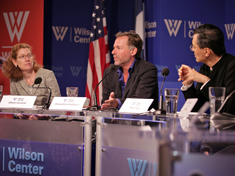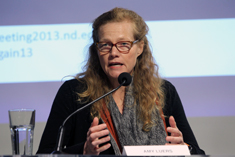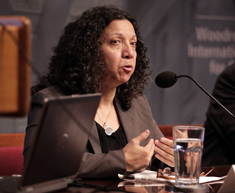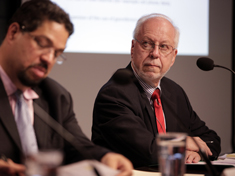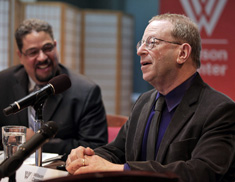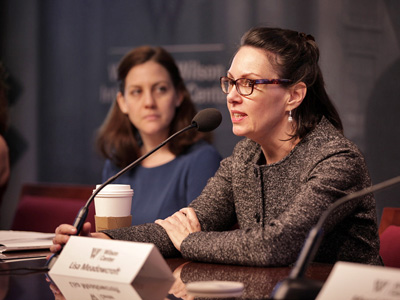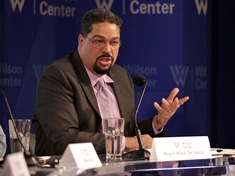-
Alice Thomas: For Refugees, Environmental Recovery Critical for Return to Normalcy
›
There are now well over 16 million refugees worldwide and 65 million people internally displaced by conflict and disasters, according to recent estimates. As more and more people are uprooted from their homes, mounting environmental pressures threaten to reinforce cycles of poverty and displacement if left unaddressed, says Alice Thomas in this week’s podcast.
-
Alexandros Washburn on How Smart City Technologies Can Help Coastal Cities Prepare for Climate Change
›
As Hurricane Sandy bore down on New York in October 2012, the city’s chief urban designer was at home in Brooklyn deciding whether or not to evacuate. In the end, Alexandros Washburn decided to stay.
-
Amy Luers: Broad Measures of Vulnerability Mask Opportunities to Build Climate Resilience
›
In this era of “big data,” policymakers too often focus on overly broad statistics, says Amy Luers of the Skoll Global Threats Fund in this week’s podcast.
-
Susana Adamo: Migration Is Changing the Geography of Climate Change Vulnerability
›
While it may seem obvious, it bears repeating that certain parts of the world are more susceptible than others to the adverse impacts of climate change. And since humans are distributed unevenly across the earth’s surface, certain people are more susceptible than others as well.
-
Not Just Climate Change: Marcel Leroy on How Demography Contributes to Africa’s Scarcity Problems
›
The Sahel has endured multiple debilitating food crises over the last five years and climate change has often been fingered as the culprit. But it is important to equally consider the amplifying effects of demographic trends on resource scarcity, says the University of Peace’s Marcel Leroy in this week’s podcast.
-
Steven Philip Kramer on ‘The Other Population Crisis’
›
Ever since Thomas Malthus’ 18th-century treatise linked overpopulation with conflict and poverty, population growth has been a subject of concern and controversy. But does population decline warrant similar attention? According to Steven Philip Kramer, the subject of this week’s podcast and author of The Other Population Crisis: What Governments Can Do About Falling Birth Rates, it does.
-
Lisa Meadowcroft on Integrating Water and Sanitation With Maternal Health Goals in Kenya
›
In sub-Saharan Africa, women collectively spend an estimated 40 billion hours a year gathering water, often walking miles to the nearest source, which may not be clean, and braving exhaustion, harassment, and worse along the way. Water availability and quality at health clinics is often not much better, creating a crisis for women, especially pregnant women, throughout the continent. A mutual solution lies in better coordination between efforts to improve water, sanitation, and hygiene (WASH) and maternal health, says the African Medical and Research Foundation’s Lisa Meadowcroft in this week’s podcast.
-
Roger-Mark De Souza: Integrated Development Shows Health, Population Dynamics Crucial for Resilience
›
Resilience means different things to different people. For many in the international development and humanitarian communities, building resilience means responding to growing climate risks through disaster mitigation and planning. But for people like Birhani Fakadi, a 39-year old mother of 11 in rural Ethiopia, it also means access to reproductive health and family planning services, says ECSP’s Roger-Mark De Souza in this week’s podcast.
Showing posts from category podcast.



